Should the Greens just focus on retaining existing seats, or winning more?
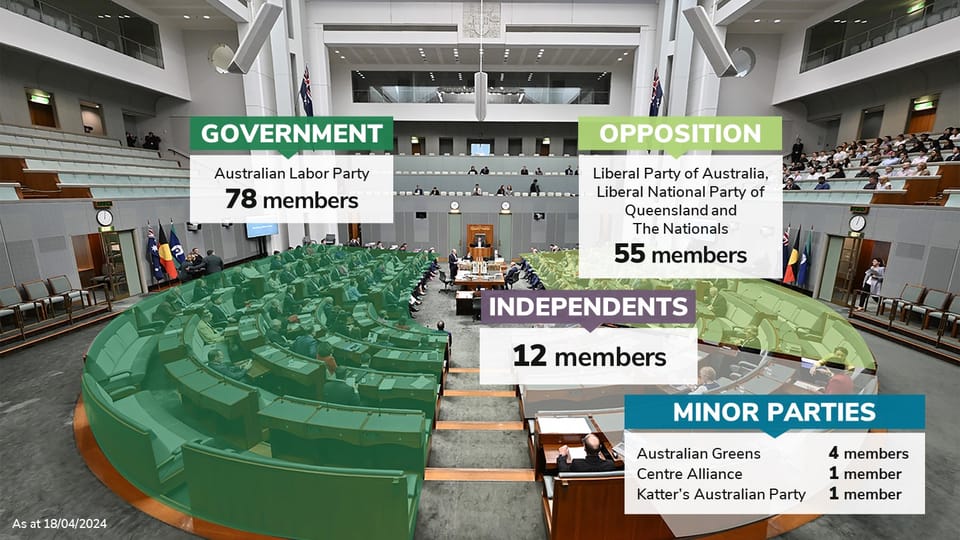
Too often in politics, people who make important decisions are heavily influenced by their own fear of losing power.
Increasingly, the Queensland Greens are also grappling with this imperative to retain seats, even though the party is a long way from wielding direct control over the machinery of government. How we manage this fear will have a big impact on how effectively the party builds and wields power over coming years...
I remember leading up to the 2020 Brisbane City Council election, there was a lot of concern within some sections of the Queensland Greens that I could lose my seat of the Gabba Ward.
At the time, the party only held one state Parliament seat – Michael Berkman’s electorate of Maiwar – and Larissa Waters was our only representative in the federal senate. I’d been the subject of sustained conservative media attacks, and ideologically I was far to the left of any other Queensland politician. We didn’t have any strong precedents to confidently predict what would happen.
The prospect of losing the Gabba Ward (which we’d only won by a narrow margin in 2016) led to the party allocating a lot of money to my re-election campaign (from memory it was in the range of $30 000 of seed funding, and we fundraised much more), even though I personally felt the funds might be better directed towards winning additional wards.
Despite the shadow of imminent covid lockdowns (a weird time to be campaigning) we activated plenty of volunteers and reached many more voters than we had in 2016. Looking back though, I wish we’d instead directed more of that money and volunteer energy towards neighbouring seats and wards, because we retained the Gabba Ward comfortably, while falling just a few hundred votes short in Paddington Ward.

I would much rather have retained the Gabba Ward with a smaller victory margin and gained another Greens colleague alongside me in the council chamber.
A similar phenomenon has recurred in subsequent elections, including the recent 2024 council campaign. Once again, the South Brisbane Greens branch spent a lot of money (even more than in 2020) on retaining the Gabba Ward, and enlisted heaps of volunteers for field campaigning – particularly doorknocking – using the narrative “we could lose the Gabba Ward” as part of the recruitment pitch.

Those “we could lose!” fears turned out to be wildly exaggerated. Our new Councillor Trina Massey had benefited from a year of incumbency to settle in and build community relationships, and this was reflected in the result. We held the Gabba Ward comfortably, but once again fell short in neighbouring winnable wards like Coorparoo.
It’s hard to draw definitive conclusions, but it does seem plausible that if some of the tens of thousands of dollars spent on the Gabba Ward had instead been used for staffing and materials in Coorparoo, and some of the volunteers we sent doorknocking in Kangaroo Point and northern Woolloongabba were instead redirected into neighbouring East Brisbane and southern Woolloongabba (within the Coorparoo Ward boundaries), we might have won it.
I’m not blaming or criticising anyone for this decision. Hindsight is 20-20. But I do wonder how much the Greens have learned from these recent experiences.
We’re now staring down the barrel of upcoming state and federal elections. And once again, our movement will have to make tough decisions about how to direct energy and resources.
To what extent do Greens supporters focus our energy on retaining our existing state seats of Maiwar and South Brisbane, versus encouraging volunteers and allocating funding towards neighbouring winnable electorates like Greenslopes, Cooper and McConnel?
How confident are we about retaining the Ryan, Griffith and Brisbane federal electorates? And should we aspire to win more seats, or just sandbag existing ones?
Our existing state seats look pretty damn safe
Michael Berkman has already won Maiwar twice (in 2017 and again in 2020) and there’s no evidence of any serious challenge against him from either of the major parties. The federal 2022 election results for Ryan and the 2024 council results confirm that support for the Greens within Maiwar’s boundaries remains very strong.
I’m equally optimistic about the state seat of South Brisbane. Amy MacMahon won South Brisbane off Jackie Trad in 2020, outpolling Labor on the primary vote. Despite Trad being very well-known in the local area, Amy’s primary vote was 37.9% vs Jackie’s 34.4%.
Since then, the Greens have made big gains at the federal 2022 election, winning the federal seat of Griffith off Labor. Max Chandler-Mather’s primary vote at the West End State School booth was a whopping 47.8% and in Kangaroo Point – historically the Greens’ weakest area within the South Brisbane electorate – the Greens vote was still a substantial 39.7%. Compare this to our federal results a decade ago (before I won the Gabba Ward) when the Greens vote in Kangaroo Point was just 10%.
More recently in the 2024 council election, the Greens vote within the boundaries of the South Brisbane state electorate was up over 45% electorate-wide, while the LNP vote was in the low 30s and the Labor vote was low 20s.

It seems pretty obvious that Greens support in the city’s inner-south side has continued to grow steadily since the 2020 state election. As with Maiwar, there’s no indication from either of the major parties that they’re seriously contesting South Brisbane or putting much effort into winning it.

These have both become progressive electorates with large numbers of young renters. For the Greens to lose Maiwar or South Brisbane, the Liberal candidate would have to come in third place behind Labor (with the vast majority of Liberal preferences flowing to the Labor candidate to help them overtake the Greens). Or there would have to be a huge swing (I’m talking an unprecedented swing of 10% to 15%) from the Greens straight to the LNP for the LNP to win.
That’s not going to happen.
In Queensland’s current political climate, there’s no chance that heaps of South Brisbane’s remaining Liberal voters are about to switch to voting Labor. It seems very unlikely that the usually-Liberal voters who gave Jackie Trad their first preference in 2020 because they knew her as an active local member will prefer a relatively unknown Labor candidate over the LNP.
And as someone who lives in the South Brisbane electorate and is reasonably attuned to political moods and currents on the ground, I can say with confidence that there’s no evidence at all that large numbers of Greens voters are about to swing back to the major parties.
Our federal seats also look very safe
The above patterns and arguments are equally applicable to the Greens’ three Brisbane-based federal seats. In the recent 2024 council elections, the Greens primary vote at almost every polling booth within the federal electorates of Ryan, Brisbane and Griffith was higher than it was in 2022 when we first won those federal seats.
At Indooroopilly Uniting Church (within Ryan) the Greens vote for the 2022 federal election was 37.7% while in the 2024 council election the Greens vote had grown to 44.5%.
Over at Fortitude Valley (within Stephen Bates’s electorate of Brisbane) the Greens primary vote in the 2022 federal election was 41.1% whereas by the 2024 council election, it had climbed to an enormous 54.5%.
With a few exceptions, these trends hold true at booth after booth across our three federal electorates. All the available evidence from recent elections suggests that support for the Greens vote is growing significantly, primarily at Labor’s expense, but also with some voters switching to us from the LNP.
Even though the council election results are very recent, I acknowledge we should exercise some caution in interpreting their relevance for federal elections. But we also have to factor in the huge benefits of incumbency.

Incumbency is a massive advantage
For Amy’s state seat of South Brisbane, and our three federal seats, the coming elections will be the first time the Greens are contesting these electorates with sitting Greens MPs. The political advantages of incumbency are too numerous to list – the elected reps (and their office staff) are paid full-time for several years to build connections with voters in their electorates. They get a huge boost in terms of name recognition and lots of resources to help them reach people.
In the Greens’ case, we also have the advantage of not being in government.
Usually, when incumbent politicians suffer swings against them, it’s because their party controls the government and people are angry at the government. That’s what happened to several Liberal MPs last federal election, and that’s the concern that Labor MPs will have in coming state and federal elections.
But our Greens MPs generally don’t have to worry about this yet (a distinction could perhaps be drawn with some southern jurisdictions where the Greens have at times controlled certain local councils or held balance of power in state/territory legislatures).
The successful re-election campaigns for Michael Berkman (as MP for Maiwar) and me (as Gabba Ward Councillor) in 2020, and similarly successful re-elections of other sitting Greens MPs in various jurisdictions around the country, paint a very clear picture of just how advantageous incumbency is.
When Michael Berkman won Maiwar in 2017, he was just 267 votes ahead of Labor after the independent candidate’s preferences were allocated.

But when he won again in 2020, he was a whopping 7923 votes ahead of Labor (Labor’s primary vote had dropped to just 18.6%) and he had also gained votes from the Liberals. The 2017 two party-preferred vote of Greens: 51.6% vs LNP: 48.4% grew in 2020 to Greens: 56.3% vs LNP: 43.7%.

As an incumbent, Michael had won over a lot of voters from both the LNP and Labor, mirroring the pattern of my re-election victory in the 2020 council campaign earlier that year.
We can confidently conclude that incumbency and associated name recognition accounts for a large component of such swings, because while my primary vote in the Gabba in 2020 was 45.6%, the Greens mayoral vote within the Gabba Ward at the same election was still only 33% (noting that there were a few extra independents/minor parties running in the mayoral race, which partly explains the difference).
Once the Greens win in an area, a large number of voters – especially progressive Labor supporters – tend to swing to and stick with us over multiple elections. Recent history shows it takes a huge amount of work for the Greens to break through and win a seat, but once we do, we don’t have to campaign very hard to hold onto it during the actual election, because our hard-working elected reps are already increasing their votes over the course of their term in office.
While it’s true that the preference flows of Liberal voters proved decisive when we won the seat of South Brisbane in 2020, and Stephen Bates only won the federal seat of Brisbane by a few hundred votes, we are now in a far stronger position of defending these seats, rather than trying to unseat entrenched major party incumbents.
The 2024 council results show no evidence of a strong swing from the Greens back to Labor in either of these seats (quite the contrary), and there’s no indication that the major parties are putting serious resources towards trying to win back the state seat of South Brisbane or the federal seat of Brisbane.
Attack is the best form of defence
While the major parties certainly have more money than the Greens, their campaign budgets are by no means unlimited, and their ability to mobilise volunteers is diminishing over time. So like us, they have to make strategic choices about how much effort to put into defending the seats they already hold, versus winning additional seats.
If, in the upcoming federal election, the Queensland Greens were to focus only on defending our three existing federal seats, without challenging Labor or the Liberals in other Brisbane seats (such as Moreton, Lilley and Bonner) the major parties wouldn’t have to worry so much about defending their own seats, and would have more capacity to try to unseat our incumbent Greens MPs.
In contrast, if the Greens made a serious move to win another federal seat – Moreton is the most likely – this would put Labor on the back foot. They wouldn’t even bother trying to win back Max’s seat of Griffith or snagging Stephen’s seat of Brisbane, because they’d have to divert funds and volunteers into defending Moreton.
The same logic holds true for the 2024 state election. If we want to take the heat off Amy and Michael, the smart move is to push more volunteers and funding into seats like Cooper, Greenslopes and McConnel.
Fear shouldn’t outweigh evidence
When I pose the question in the abstract, almost everyone says “Of course the Greens should focus resources on winning more seats!” But in practice, there’s lots of inertia towards funding re-election campaigns for seats we’ve already won.
Perhaps in almost every political party, sitting MPs and their staffers will have a lot of influence over decisions about where to allocate campaign resources, either by direct representation on key committees, or indirectly through the social capital they wield within their organisation. Understandably, they tend to argue for more resources for their own campaigns. They do this out of fear they could lose their jobs if the election goes badly, but also because if a party or movement directs more support towards retaining a seat, that MP and their staff can relax a bit, and individually won’t have to work as hard on the re-election campaign, allowing them to instead focus on other kinds of constituent work.
Electorate offices sometimes receive more complaints and criticism from their constituency than positive feedback, even when they are generally well-liked by their community. So elected reps and their staff can sometimes form an overly pessimistic assessment of local public sentiment. But from my experience in the Greens, I’ve noticed that other strategists, party officials and decision-makers are of course inclined to trust the judgement of an MP when assessing how safe or vulnerable a seat is.
The net result is that people whose roles are quite stressful (and generally don’t permit much time for deep reflection) can talk themselves into believing a seat needs defending when it’s actually very safe.
Whatever dataset you look at – the 2024 council election results, wider state and national polling trends, the general tone of local public commentary about their Greens reps, or the historic patterns of incumbent Greens MPs growing their vote and holding seats comfortably (particularly when they aren’t in government or regularly wielding balance of power), you're drawn to a very clear conclusion: The Greens’ state seats of Maiwar and South Brisbane are extremely safe, as are the federal seats of Brisbane, Griffith and Ryan.
Yes, the slim possibility of losing seats might seem a little scary – particularly for MPs and staffers whose jobs depend on winning – but do you know what I find far scarier? The prospect of the major parties (and their big business puppet masters) continuing to hold onto power for many years to come.
I don’t believe that the Greens winning more seats in Parliament is going to be enough by itself to change society for the better. But if we do see the Greens winning more seats as important, the party needs to stretch itself to aim for that, rather than focussing too heavily on defending the gains of previous elections.
If you’re a Brisbane-based Greens supporter who’s thinking about where to direct your energy over the next ten or eleven months, state election seats like Cooper, McConnel, Greenslopes and Miller seem to me to be higher priorities than just over-concentrating efforts on retaining Maiwar and South Brisbane.
And for the federal election, I think the Queensland Greens would be well-advised to have a serious crack at winning Moreton, and growing the vote in other federal seats across the state, rather than resting on our laurels and worrying too much about protecting three seats we’ve already won.
We simply don’t have time to incrementally win just one or two seats across the country each election. I’m not content with plodding along, hoping that in 15 or 20 years we’ll finally have enough parliamentary influence to stop big business destroying the biosphere and dragging the globe into perpetual war over increasingly scarce resources.
If we want change, now is the time to push for it.

I think it’s important that everyone who supports the Greens is aware of these tricky questions and is able to form an informed opinion about them. A strong, successful social movement requires its participants to be critically engaged and able to participate intelligently in strategic debates.
If you value commentary like this being publicly available for progressive readers, rather than hidden away in private email chains between just a couple of people, please support this work by subscribing to my email newsletter.
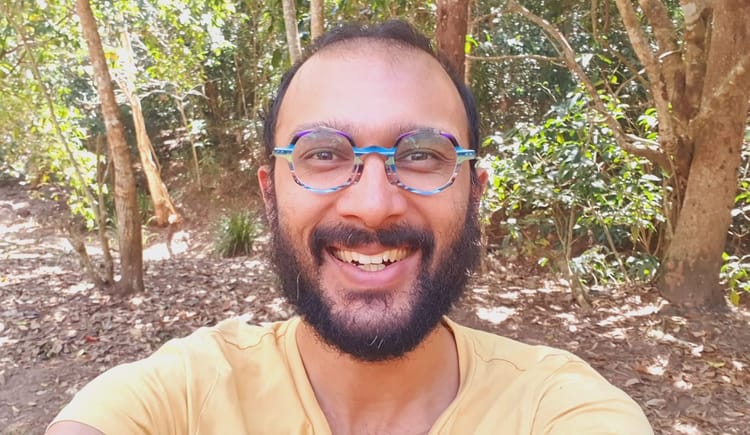
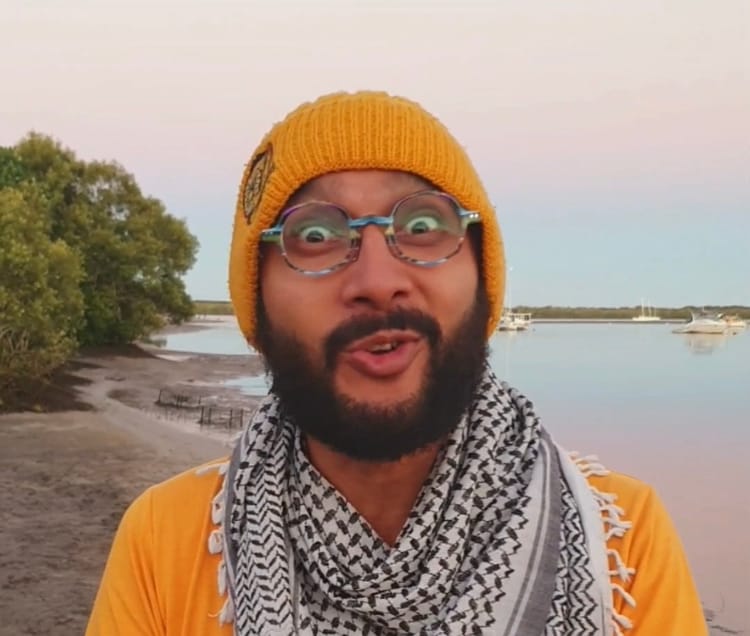
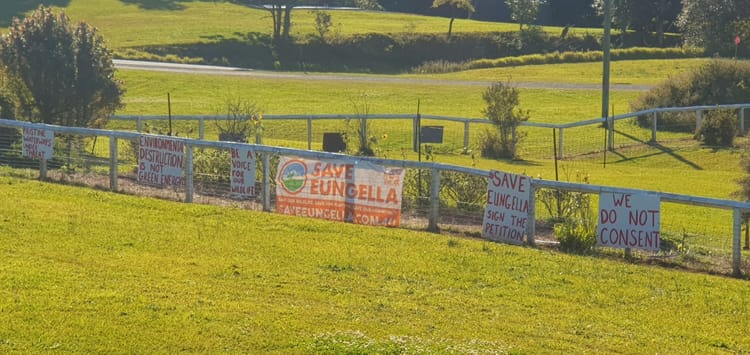
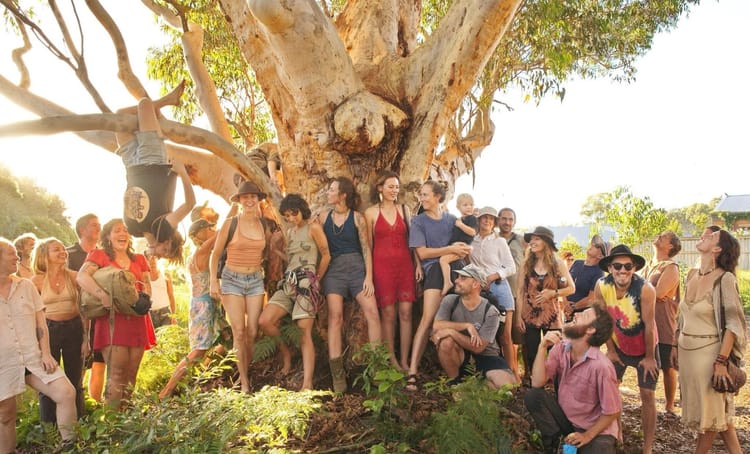
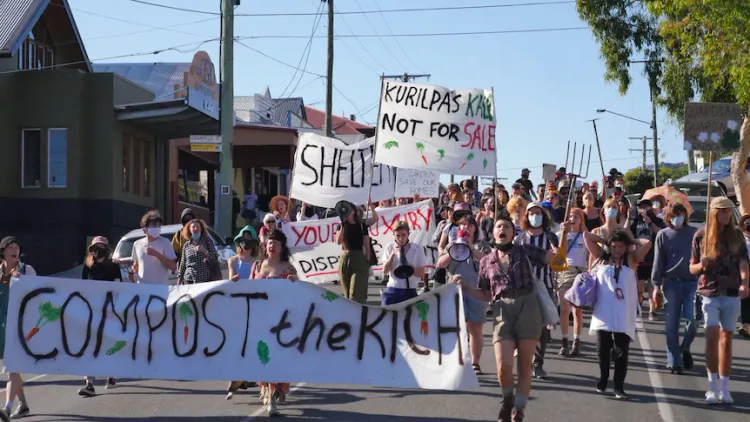
Member discussion